Social Justice Sunday 2020
August 28, 2020A Kairos Moment – the Call of Social Justice Sunday?
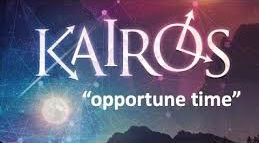 Last month Jim Wallis from Sojourners described this COVID-19 period as Kairos time. And it is such an apt term. We know that the Greeks had two words for time – Chronos: the chronological passing of time, and Kairos: an auspicious, precarious moment, when things come to a head and we’re called to a new place. Jim’s description really captures for me the reality of the Covid experience as one of Kairos time.
Last month Jim Wallis from Sojourners described this COVID-19 period as Kairos time. And it is such an apt term. We know that the Greeks had two words for time – Chronos: the chronological passing of time, and Kairos: an auspicious, precarious moment, when things come to a head and we’re called to a new place. Jim’s description really captures for me the reality of the Covid experience as one of Kairos time.
From the very beginning of the virus, we’ve heard this year described as unprecedented, unparalleled. Leaders have told us ‘we’re all in it together’, that ‘we’ll never be the same again.’ And in many ways, this is true. It’s beyond doubt that it’s been a year like no other we’ve experienced in our lifetime. The COVID-19 pandemic has dominated our lives and the media, and justifiably so. It’s been both a threat and an opportunity for us – personally, socially, economically, politically, spiritually.
Social Justice Sunday then, comes as a moment in this precarious year to look again – at the very heart of who we are and what our lives are really about. It reminds us of both the fragility and challenge of our days. It calls us to passion and compassion, those qualities at the core of the gospel, told in the story of the Good Samaritan, and embodied in the life, death and resurrection of the Jesus whom we follow.
 Social Justice Sunday this year binds us together as a community in a distinctive way. At its core, it’s a profound time when once again, we are, in Pope Francis’ terms, learning to weep – as we experience the ravages of Covid; as we mourn with those who are suffering from the virus and its effects; as we grieve for those who have died alone, as well as for their families who feel bereft; as we anguish with those who have lost livelihoods and friends; as we experience particular anger at the devastating and unequal impact of Government assistance for those who have been totally excluded from financial assistance; as we lament the ongoing devastation of climate change.
Social Justice Sunday this year binds us together as a community in a distinctive way. At its core, it’s a profound time when once again, we are, in Pope Francis’ terms, learning to weep – as we experience the ravages of Covid; as we mourn with those who are suffering from the virus and its effects; as we grieve for those who have died alone, as well as for their families who feel bereft; as we anguish with those who have lost livelihoods and friends; as we experience particular anger at the devastating and unequal impact of Government assistance for those who have been totally excluded from financial assistance; as we lament the ongoing devastation of climate change.
The realities of this year remind us starkly that yes, we are “all in this together,” except that some are more “together” than others, and some safeguarded much more than others. And the temptation, as always in a time of crisis, is to batten down the hatches and protect what we have and who we are, in our defined community that is “all together”.
As I’ve reflected on Social Justice Sunday, it seems to me that this year, once again, we’re called in a very unambiguous way beyond our own “defined community.” We’re reminded that the gospel calls us to live our lives on the edge, expressing solidarity with those who are poor, and demonstrating practical hospitality, especially in this time when our lives are fragmented and when we’re confronted with our own fragility and that of our Church and Government. The call is to build community, not just with those in our immediate environment, but with all those currently excluded.
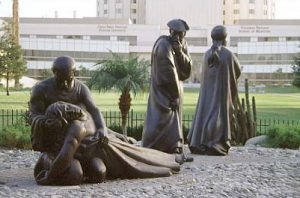 For me, this is the sign of great hope. We read and hear every day of those who are expressing solidarity with those on the edge – the kindness of neighbours & strangers joining together in creative ways; the groundswell of goodness reaching out to families such as the Biloela parents and their two small children, imprisoned to enable the Government to make a point; those working against fossil fuel power and dishonesty; small groups advocating for endangered species; individuals donating goods and vouchers for those in desperate need. There is so much inspiration, as well as challenge, in the pattern of our Kairos days.
For me, this is the sign of great hope. We read and hear every day of those who are expressing solidarity with those on the edge – the kindness of neighbours & strangers joining together in creative ways; the groundswell of goodness reaching out to families such as the Biloela parents and their two small children, imprisoned to enable the Government to make a point; those working against fossil fuel power and dishonesty; small groups advocating for endangered species; individuals donating goods and vouchers for those in desperate need. There is so much inspiration, as well as challenge, in the pattern of our Kairos days.
Joanna Macy speaks of this as the spiral of justice work, beginning with ‘gratitude,’ moving to ‘grief for the world,’ to ‘seeing with new eyes,’ then ‘going forth.’
For me the “going forth” has particular meaning in this time of isolation and “social distancing.” It’s one I find illuminating in this Social Justice Sunday’s call to a new open weave of compassion and community for all who inhabit this fragile world.
Jan Barnett rsj
Josephite Justice Co-ordinator
You’re invited to view the Australian Catholic Bishops Social Justice Statement for Social Justice Sunday (30 August 2020) below:
I am Josephite: Sr Majella’s Story
August 19, 2020Our third video for the recently launched series titled ‘I am Josephite’, features Sister of Saint Joseph Majella O’Sullivan.
About her ministry, Sr Majella said she is “working as a pastoral associate with the Catholic deaf community.”
You’re invited to view Sr Majella’s story in the video provided below:
World Humanitarian Day 19 August 2020
Honouring #RealLifeHeroes.
 It feels natural for us to reach out to others when they are in need. We are, overwhelmingly, unable to stand back and not help those who are vulnerable, neglected or suffering. At times it can feel all too much and we feel powerless, especially in turbulent times like those we are all experiencing now, but rather than turning away from what can seem to be so insurmountable – I am heartened by the many taking action, in small, and not so small ways. Mary MacKillop famously said “Never see a need without doing something about it” and as we approach World Humanitarian Day on 19 August – we honour those who live by this example every day.
It feels natural for us to reach out to others when they are in need. We are, overwhelmingly, unable to stand back and not help those who are vulnerable, neglected or suffering. At times it can feel all too much and we feel powerless, especially in turbulent times like those we are all experiencing now, but rather than turning away from what can seem to be so insurmountable – I am heartened by the many taking action, in small, and not so small ways. Mary MacKillop famously said “Never see a need without doing something about it” and as we approach World Humanitarian Day on 19 August – we honour those who live by this example every day.
The United Nations established World Humanitarian Day in 2009 and the annual celebration honours those who have lost their lives in the service of others and recognises the amazing efforts by medical and aid workers in alleviating the suffering and hardships of so many around the world. They show the resilience, kindness and compassion of our shared humanity, by dedicating their time, energy and their lives to make the world a better place through their selfless acts. Humanitarian workers don’t hesitate to go where many may fear to venture and offer up their service to the needs of humanity; helping women, children, men and whole families survive in conflict and disaster zones. It takes such courage, of both heart and soul, to follow the calling to live one’s life for others. I can only imagine the struggle not to become weary with so many to help with so little resources, and yet they preserve and echo Mary’s words in their heart, taking… “fresh courage’, determined to do all that they can. We are so thankful for their service every day, especially right now during COVID-19 and the impact this has on being able to do their incredibly hard work.
 You and I, might not be able to enter into a war zone or be able to jump on a plane to offer medical care during a worldwide pandemic, but we can see the needs of others around us in our daily lives and find a way to take action. There are so many ways we can show our humanity and honour those who do what we cannot; by volunteering, helping a neighbour, paying it forward, offering a hand up and committing to the simple idea of a weekly act of kindness. Anyone can be a humanitarian – it truly doesn’t take much to make a difference and make the world a better place.
You and I, might not be able to enter into a war zone or be able to jump on a plane to offer medical care during a worldwide pandemic, but we can see the needs of others around us in our daily lives and find a way to take action. There are so many ways we can show our humanity and honour those who do what we cannot; by volunteering, helping a neighbour, paying it forward, offering a hand up and committing to the simple idea of a weekly act of kindness. Anyone can be a humanitarian – it truly doesn’t take much to make a difference and make the world a better place.
May we all heed the example set by Mary MacKillop, by the Sister of Saint Joseph and by the #RealLifeHeroes, the Humanitarian workers, and do what we can to serve those in need.
If you’d like more information on how you can take action and transform the lives of vulnerable and neglected people here in Australia and overseas, visit Mary MacKillop Today to learn more.
Kelly Vance, Direct Marketing Officer
Mary MacKillop Today
Climate Emergency in the Pacific Webinar
August 17, 2020Webinar on the Climate Emergency in the Pacific and how Australians should Respond
On the 5th anniversary of Pope Francis’ Laudato Si’ encyclical, you are invited to a special Zoom webinar on the climate emergency in the Pacific and how Australians should respond.
Join Bishop Vincent Long (Bishop of Diocese of Parramatta) and His Excellency Anote Tong (former President of Kiribati) for a conversation facilitated by Jan Barnett rsj.
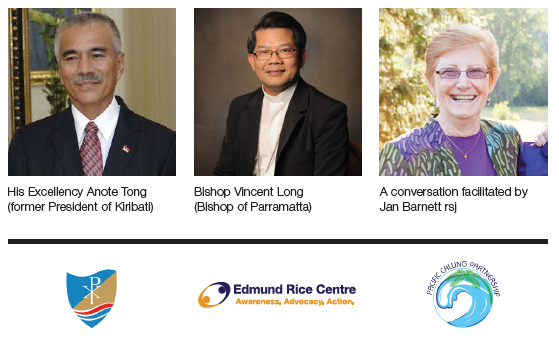
For more information and to RSVP, please click on the link and view the flyer provided below:
Webinar on the Climate Emergency in the Pacific
Laudato Si’ Webinar: Part Five
August 13, 2020In May 2015 Pope Francis launched his encyclical with the subtitle “On Care for our Common Home” and the title “Laudato Si’” which are the opening words for a hymn composed by St Francis of Assisi in the 1200s.
For our time, this document is both relevant and important, since it highlights the priority that respect for the environment should have in Catholic life, and integrates the notion with what is central to our understanding of humanity’s relationship with God.
I am Josephite: Sr Lee’s Story
August 9, 2020Our second video for the recently launched series titled ‘I am Josephite’, features Sister of Saint Joseph Lee Tan.
About her ministry, Sr Lee said she is “working as a community organiser with a global movement of community alliances.”
You’re invited to view Sr Lee’s story in the video provided below:
So Small a Beginning: Part 5
August 8, 2020Sr Marie Foale speaks about the beginnings of the Institute of St Joseph for the Catholic education of poor children.
She believes that as a young Josephite growing up, she had a sense that one day Mary MacKillop and Julian Tenison Woods had made a spontaneous decision to found an order.
Geocaching
How did you learn about Mary MacKillop?
Maybe it was a book read, a movie, or a visit to a museum. However, thousands of people every year, do none of these things, but do go GEOCACHING! Geocaching is the world’s largest treasure hunt and it can lead you to a journey through the story of Mary MacKillop.
In 2000, when GPS became widely available, a man named Dave Ulmer hid a container, called a cache, in the woods. He noted the co-ordinates of his hide and spread the news to his friends. The first person to find it using a GPS could keep what was hidden in the cache. He also put inside the cache a piece of paper, so that friends could leave their names as finders, even though they didn’t get the prize.
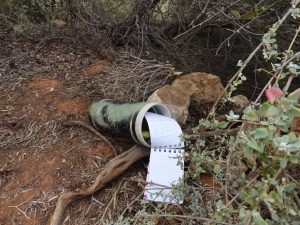
This was the beginning of a worldwide game called “Geocaching.” Friends of Dave went and did their own hides for other friends to find, and consequently many more joined in the fun. In fact, there are now 7 million people looking for more than 3 million caches hidden across the world. And over 150 of those hides are placed at significant sites of the Mary MacKillop story.
Each ‘hide’ in Geocaching has a page on the website with a story about the hide, clues (e.g. size of the container and other hints like, “in a tree”) and a map to find it. When someone finds the hide, they leave their name on the paper inside the cache and type a message on the website.
The first hide for the Mary MacKillop cache series was hidden at Mount Street, North Sydney near the site of her burial place. The hides have now extended to be in all states and territories, as well as New Zealand, Ireland and Scotland. Caches are now near Museums for Mary MacKillop, schools, Statues, Plaques, streets and parks all connected to Mary MacKillop’s story
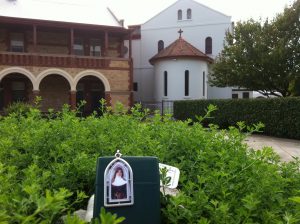
People from all over the world are discovering these hides and learning about Mary MacKillop. In many cases, they had not previously heard of her story. Unlike books, geocaching allows for a physical adventure to places of significance in Mary’s life. Posts on the website by finder’s attribute to this…
I have travelled this road to work for many years. Never knew Mary started this school in my town.
So, if you would like to know more about Mary MacKillop you could read a book, surf the web or visit one of the museums. Alternatively, download the Geocaching App on your iPhone (or visit the website), hit the ‘find a geocache’ button and follow the directions.
A great way to do a pilgrimage… no bookings required!
Happy Geocaching!
Watch a video explaining geocaching here
Julianne Murphy rsj
